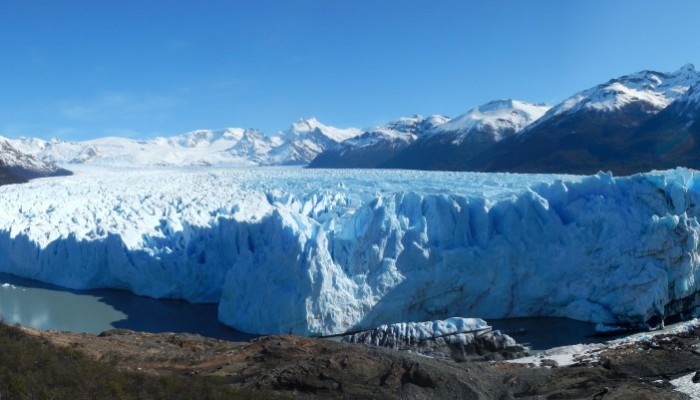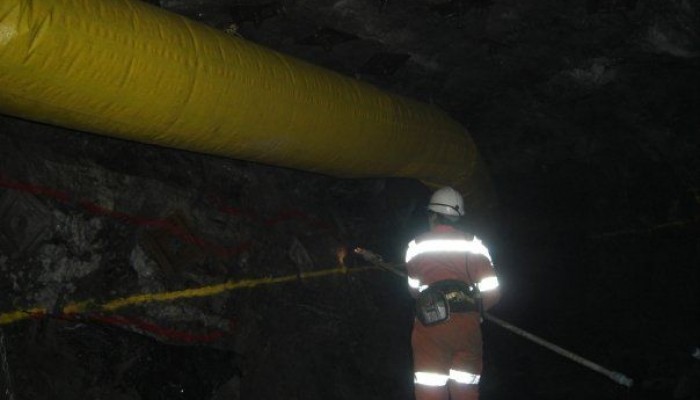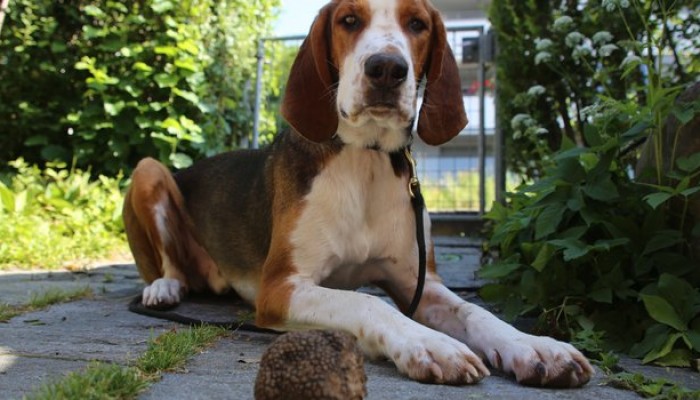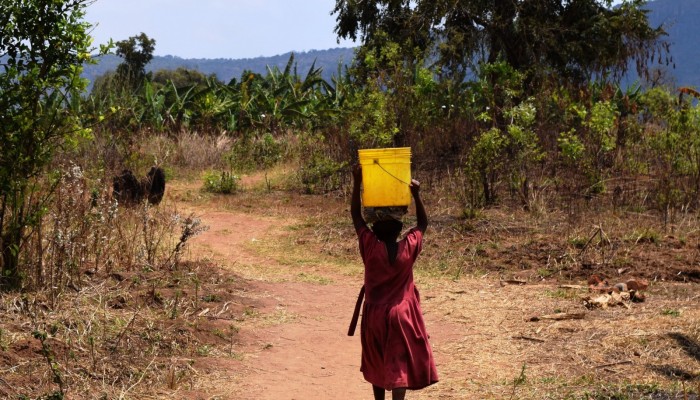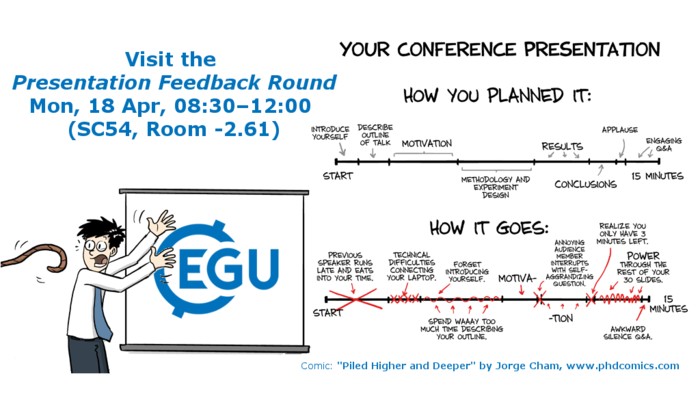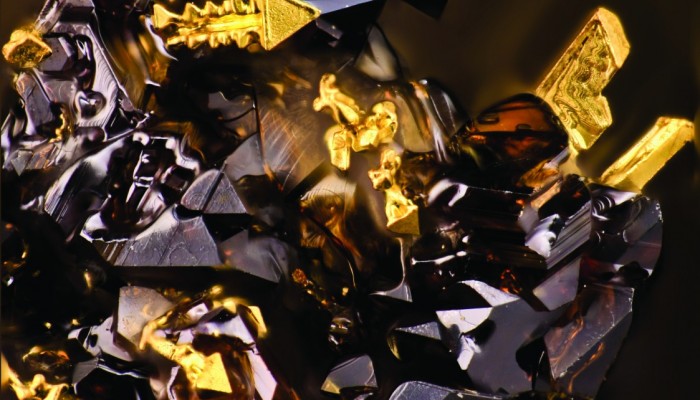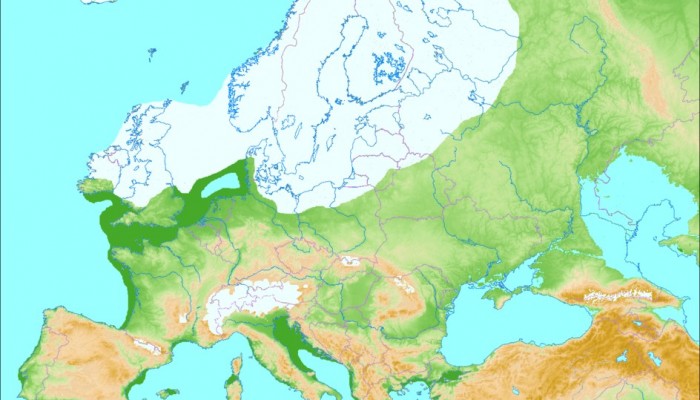With today’s image of the week we want to transport you to Patagonia to look at a unique fresh-water calving glacier – Perito Moreno in Argentina. This is a hot topic at the moment as the glacier did something rather unusual yesterday, read on to find out more….. This large glacier (Fig 2, highlighted red) flows down a valley, calving into the southwestern arm of Lago Argentino ...[Read More]
If you didn't find what you was looking for try searching again.
Energy, Resources and the Environment
Navigating the EGU General Assembly, short course for Early Career Scientists
If you are an Early Career Scientist (ECS) your first experience at the EGU General Assembly can be a bit bewildering with the sheer numbers of sessions and people milling around. You might find it worthwhile attending a short course on: “How to navigate the EGU, Tips & Tricks” (SC36): http://meetingorganizer.copernicus.org/EGU2016/session/22155.” Monday 18th of April; 12.1 ...[Read More]
GeoLog
What is in your field rucksack? The bag of a mining geologist
Inspired by a post on Lifehacker on what your average geologist carries in their rucksack/backpack, we’ve put together a few blog posts showcasing what a range of our EGU members carry in their bags whilst in the field! Of course, it’s not only research geoscientists who carry kit! Earth scientists in industry often require a number of tools to carry out their daily duties. Today we feature the co ...[Read More]
Biogeosciences
Coffee break biogeosciences – using truffle dogs for science!
Coffee break biogeosciences, your bi-weekly biogeoscience cake to accompany your coffee… Do you remember your last scientific conference? Did you also find the scientific coffee break discussion as interesting as the scientific talks? If yes, these short blog posts will allow you to keep the interesting coffee break discussions going as we´ll give you on a bi-weekly basis your scientific bio ...[Read More]
Geology for Global Development
The Impacts of Climate Change on Global Groundwater Resources (Part 3 of 4)
Christopher Barry is a doctoral researcher at the University of Birmingham. He has written for the GfGD Blog in the past – detailing his contribution to water projects in Burkina Faso and fundraising efforts to support such work. We have recently added a briefing note to our website, written by Christopher, describing the role of climate change on global groundwater resources. You can access ...[Read More]
Seismology
Great achievements of Adam M. Dziewonski
Through the IRIS community some sad news reached us today: Adam M. Dziewonski, Professor Emeritus at Harvard University, passed away 1st of March 2016. Dziewonski, a Polish-American geophysicist, was a GIANT in seismology. Among others, we owe him the first direct proof of the solidity of the inner core, and the Primary Reference Earth Model (PREM), which he built with Don Anderson, also recently ...[Read More]
Geodesy
Your scientific talk: mental breakdown or conference highlight?
After last years success, we’re again organizing a short course on presentation techniques. EGU GA 2016 participants who are interested in rehearsing their talk and getting feedback can sign up of for a rehearsal here (deadline 31 March 2016). Of course we welcome and encourage contributions from all divisions. You can feel it coming, sometimes it kicks in days before your talk, at other tim ...[Read More]
GeoSphere
Photo of the Week #51
I’m getting back in the bog saddle. After a brief hiatus as I was adjusting to the life of a real, productive member of the PGS (post grad school) world I am good to go for blogging again. Enjoy the photo of the week! The text that follows is a technical description of the photo by the photographer, Dmitry Tonkacheev. Presented intergrowths of the infinite number of dark-brown sphaleriteR ...[Read More]
Geology for Global Development
The Impacts of Climate Change on Global Groundwater Resources (Part 2 of 4)
Christopher Barry is a doctoral researcher at the University of Birmingham. He has written for the GfGD Blog in the past – detailing his contribution to water projects in Burkina Faso and fundraising efforts to support such work. We have recently added a briefing note to our website, written by Christopher, describing the role of climate change on global groundwater resources. You can access ...[Read More]
Cryospheric Sciences
Image of the Week — Last Glacial Maximum in Europe
During the last ice age*, ~70,000 to 20,000 years ago, the climate was much colder in Europe. As a result, the northern part of Europe was fully covered by the Fennoscandian (a.k.a the Scandinavian ) ice sheet, which extended up to the British Isles and some parts of Poland and Germany. In central Europe, the Alps were also almost fully glaciated. The storage of all this ice on the continent lower ...[Read More]

